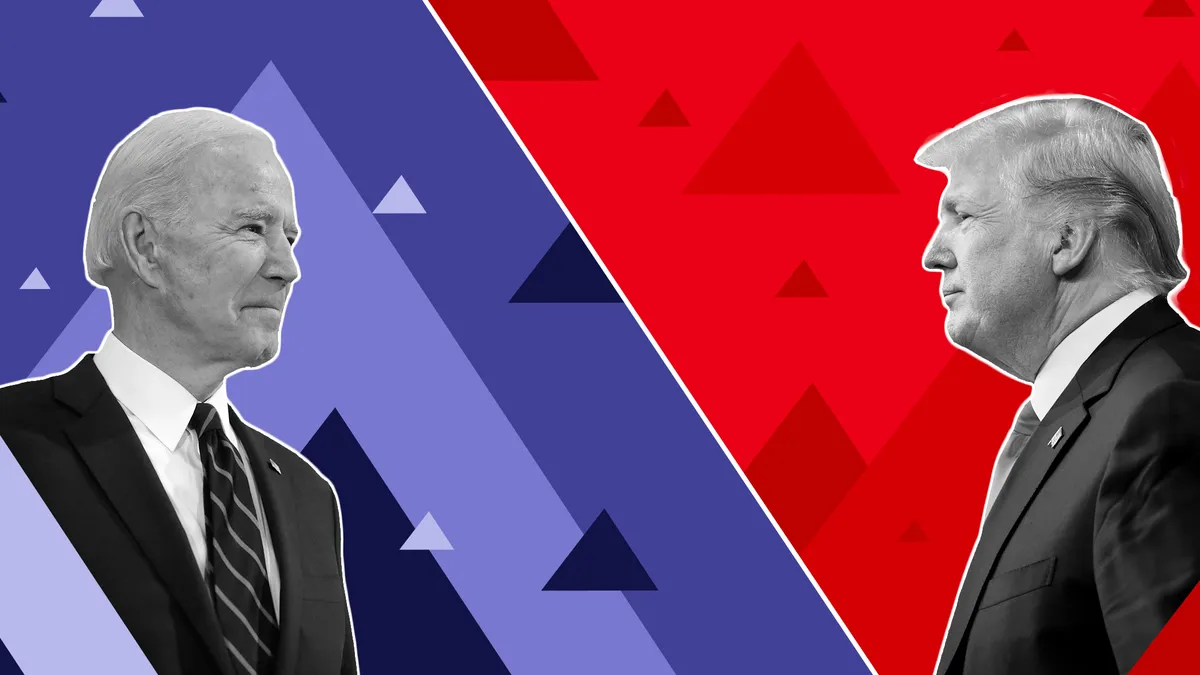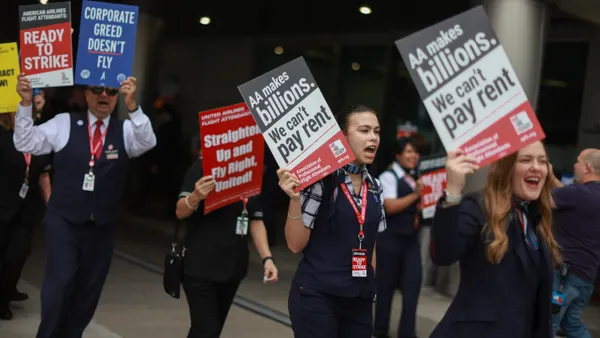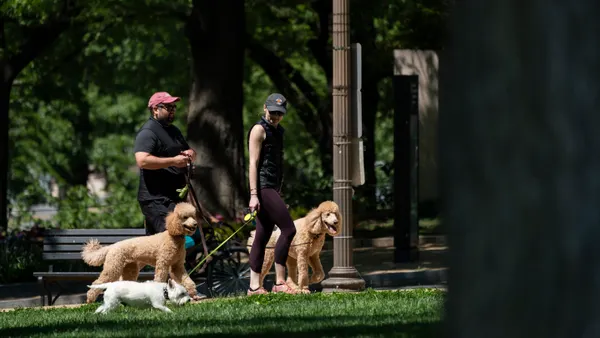The second and final presidential debate, held in-person in Nashville, Tennessee Oct. 22, ran the gamut from COVID-19 response to race in the U.S. — notably touching on economic recovery, healthcare and the minimum wage.
COVID-19 and economic recovery
Former Vice President Joe Biden spoke to providing resources to businesses, including contact tracing and social distancing tools, such as plexiglass and masks, and doubled down on mask mandates. He did not rule out further shutdowns, but noted that businesses need the "capacity" to open with assistance.
President Donald Trump said that the country "[has] to open," citing job losses and business closures. "We’re learning to live with it, we have no choice."
Employers have been pressed to respond to concerns about contact tracing plans, including new compliance risks, data privacy concerns and employee morale impacts. COVID-19 closures and social distancing rules may accelerate automation for certain industries, a September analysis from the Federal Reserve Bank of Philadelphia said, leading to potential further job loss especially for what the Fed referred to as "minority" workers. However, COVID-19 may also have spurred innovation that has improved accessibility for job seekers with disabilities.
Healthcare and the Affordable Care Act
Moderator Kristen Welker, White House correspondent for NBC News, pushed Trump regarding his plan for healthcare if the Affordable Care Act is deemed unconstitutional by the U.S. Supreme Court, particularly regarding insurance for those with pre-existing conditions. Trump mentioned the successful repeal of the individual mandate: "It no longer is Obamacare. Without the mandate, it is different."
Trump instead went after Biden’s plan, calling it "socialized medicine." Biden reiterated that he supports private insurance and that "not one person with private insurance would lose insurance under my plan" — though he did state his support for a public option under what he called "Bidencare."
COVID-19 has stress tested employer healthcare plans; Willis Towers Watson said in March that employers could see healthcare costs rise between 4% and 7% in 2020 due to COVID-19 treatment and costs. And more than half of companies surveyed by Mercer this year said they would not be shifting those costs onto employees.
Minimum wage
Welker pressed Biden on his support for a $15 minimum wage during a time when small businesses are facing closure due to the pandemic. Biden said the government would need to "bail out" those businesses alongside the larger ones.
Trump mentioned his belief that wages should be decided at the state level and took the opportunity to criticize Biden on the issue, as well: "We have to help our small businesses. How are you helping our small businesses when you raise wages?"
Biden disagreed that a higher minimum wage would lead to companies going out of business. Studies on the topic remain mixed; the Congressional Budget Office estimated in July 2019 that 1.3 million workers would be out of a job if the federal minimum wage was raised to $15 an hour, but other studies have disputed this outcome.
Race in the U.S.
Welker pointedly questioned both candidates about their take on "The Talk" — how people of color prepare their children to be potentially targeted by the police "for no reason other than the color of their skin."
Biden noted that he never had to teach his daughter such things. "The fact of the matter is, there is institutional racism in America," he said.
Trump, meanwhile, touted his funding and support for historically Black colleges and universities (HBCUs). Employers have sought partnerships with HBCUs partly in response to the racial justice protests of the past summer.
Trump, however, recently signed an executive order that blocks some federal trainings on race, particularly those that refer to critical race theory or white privilege, calling the sessions "divisive, anti-American propaganda."














